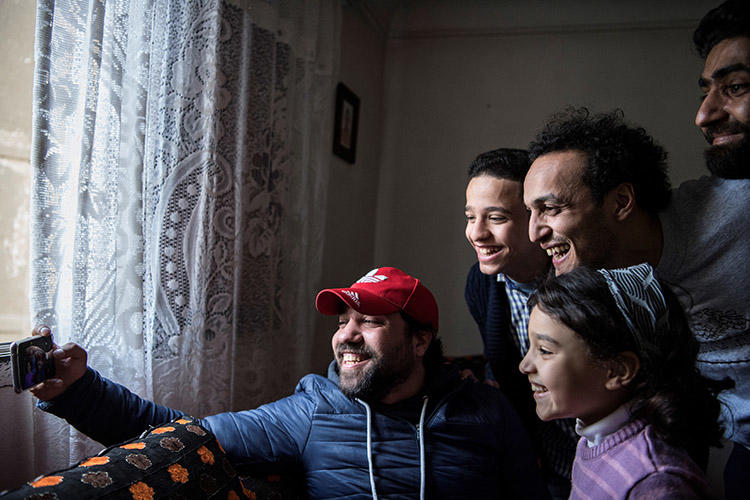On October 10, Mahmoud Abu Zeid turned 33. It was the Egyptian photojournalist’s first birthday out of prison since his August 2013 arrest. But in spite of his celebrated freedom in March, the police monitoring conditions of his probation have, in effect, rendered his release obsolete.
The London-based Media Legal Defence Initiative (MLDI) submitted a petition to the U.N.’s Working Group on Arbitrary Detention on October 10, arguing that Shawkan should continue to be considered arbitrarily detained. “Egyptian authorities are using excessive probation measures to further punish the petitioner and to prevent him from carrying out his work as a journalist,” it said.
The petition, which was shared with CPJ by email, stated that Shawkan has spent every night in al-Ahram police station since his release from prison. The MLDI detailed police abuse against him custody, including “torture and ill-treatment, forced labor and exploitation.” It added that he is forced to undertake tasks “under threat of violence or further imprisonment” and that authorities do not provide him with bedding, food or water, or proper bathroom facilities while detaining him overnight.
The threat of being taken back to prison is always a possibility. In recent months, police have taken journalists who were released on probation back into custody, CPJ has found. Authorities have arrested Mada Masr columnist Alaa Abdelfattah, blogger Mohamed Oxygen, and freelancer Hassan al-Kabbani, along with other journalists.
In an October 9 Facebook post, Abdelfattah’s sister, Mona Seif, wrote that Abdelfattah was beaten, blindfolded, verbally abused, and threatened by police, who told him he will never get out of prison if he reported the ill-treatment. He and Oxygen, who was arrested after live streaming a protest, are facing anti-state charges, including spreading false news, according to Abdelfattah’s employer, Amnesty and the local rights group the Arab Network for Human Rights Information. In al-Kabbani’s case, he was kept in an undisclosed location without access to his family or lawyer for at least 23 days, according to his former employer, the news website Freedom and Justice Gate.
The treatment that Shawkan has to suffer on a daily basis and the limited time he spends out of custody are not the experiences of a free man. The U.N.’s Working Group on Arbitrary Detention should acknowledge the reality of his situation and continue to demand that Egypt frees Shawkan once and for all.
